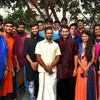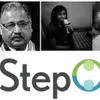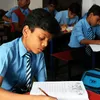Revisiting 2020: 10 educational initiatives that impacted the lives of students despite the pandemic
SocialStory brings 10 inspirational stories of people, startups, and NGOs who burned the midnight oil in 2020 to brighten the future of students in India amidst a pandemic.
The COVID-19 pandemic has been both a disruptor and a medium for change. This is especially the case when it comes to education.
With many students and teachers forced indoors due to the coronavirus-induced lockdowns, schools, educational institutions, policymakers, and NGOs adapted to using digital means to impart education.
Many individuals came forward to accelerate this transformation by donating smartphones, tablets, and other resources to students coming from underprivileged backgrounds or those living in slums.
Many educators also served as models to impart better education and improve the lives of those who are economically disadvantaged. From changing the ways anganwadis impart education to driving the cost of education down, these pioneers have strived to make education more accessible and inclusive.
The central government also introduced the new National Education Policy in an effort to overhaul the country’s education system, while making it more progressive, ubiquitous, and far-reaching than ever before.
From running a model anganwadi in Jharkhand, imparting financial literacy to girls, to enabling rural India to adapt to online education, SocialStory brings 10 inspirational stories of people, startups, and NGOs who burned the midnight oil in 2020 to brighten the future of students in India.
Changing the state of education in Jharkhand
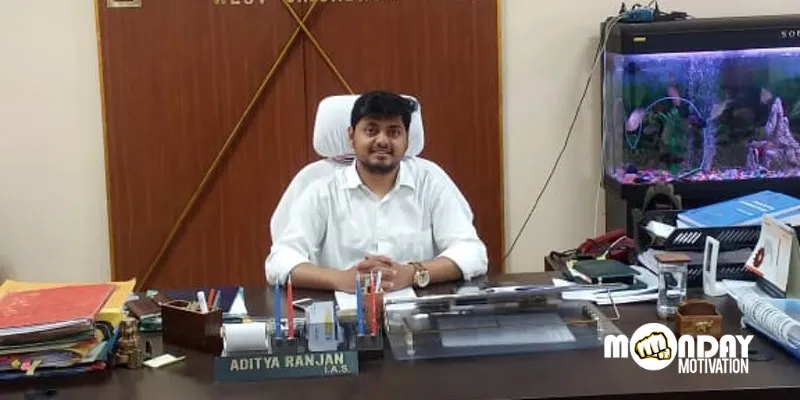
IAS Officer Aditya Ranjan
If you travel through Shinghubhum district in Jharkhand — one of the poorest constituencies in India — you will notice that the walls of 650 anganwadis (rural childcare centres) are painted with numbers and alphabets.
A part of ‘Model Anganwadi,’ the initiative is the result of the efforts of IAS officer Aditya Ranjan, who is working on providing better sanitation, starting basic education, and providing nutritional food for the villagers.
He found inspiration for model anganwadis when he saw a widowed sevika improvise one such anganwadi in Deoghar district by using her meagre monthly salary of Rs 4,500.
The model anganwadis have played a critical role in giving adequate nutrition needed for a child’s growth and development. To ensure that the resources are properly used, he introduced the E-Samiksha app to record daily activities at the centres.
He went on to make the District e-Governance Society (DeGs) programme more effective to raise computer literacy and soft skills, including how to walk and talk professionally, speak at interviews and group discussions, and the ways to use mobile phones.
Making career counselling more accessible
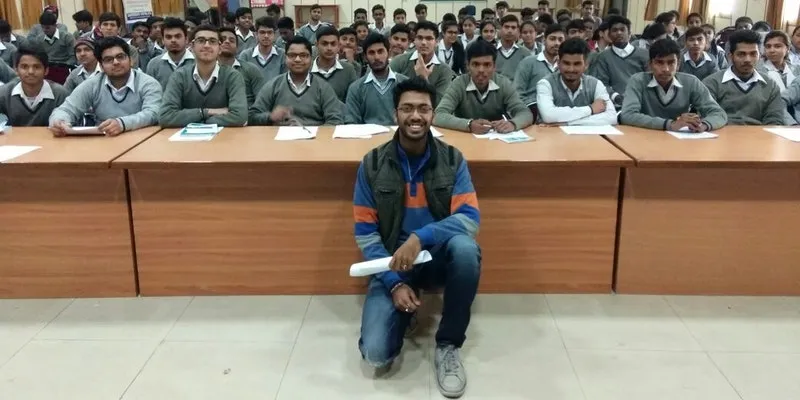
Aditya Bose. Founder, ProBano
Started in 2017 by Aditya Bose, Delhi-based has reached out to 12,000 students from 142 institutes across 11 states with feasible career counselling for students living in slums, and those coming from poor economic backgrounds.
“We aim to democratise quality career guidance and don’t want students from the bottom of the pyramid to miss out on it because of the huge potential it possesses. That’s why, we have career guidance offerings that provide a mix of online and in-person career guidance, priced at Rs 99 – Rs 4,999 per student,” he said.
The startup has designed its approach in a way to understand the needs of young school children. The first cycle is centred around exploring and discovering one’s passion. The startup then takes its students through career-based courses, where online modules coupled with a few in-person classes are conducted, to help them learn the fundamental skills needed to pursue their desired career option.
ProBano has provided career guidance to high school students of Army Goodwill schools in Jammu and Kashmir, and branches of Government Higher Senior Secondary schools in Jammu, Rajasthan, and Haryana.
It has also offered its services to the Tamil Education Association schools in Delhi, multiple Zilla Parishad High schools of Telangana and Andhra Pradesh, as well as government ITIs of Haryana.
Imparting financial literacy to underprivileged girls

Anannya Parekh, CEO of Inner Goddess.
Anannya Parekh, the Co-founder and CEO of Inner Goddess, has always had a bent towards education. A renowned public speaker and an alumnus of AIESEC, Anannya has also represented India at many global summits.
"I understood gender bias very clearly while growing up. I never kept my thoughts and questions to myself, but rather discussed them openly with my parents. Over the years, I had my clarity of the why, behind the societal constructs and socio-economic discourse."
Chennai-based Inner Goddess educates women on financial literacy that covers the sensitivities of financial anxiety, mental health, and personal investing. The organisation follows a teacher-training model by conducting workshops that span over three hours.
Started in September 2016, it has conducted over 70 workshops with 10,000 women across Chennai, Mumbai, Hyderabad, and Bengaluru. It caters to young women aged between 16 and 25 years, who come from underprivileged backgrounds.
Providing free education to Musahar children
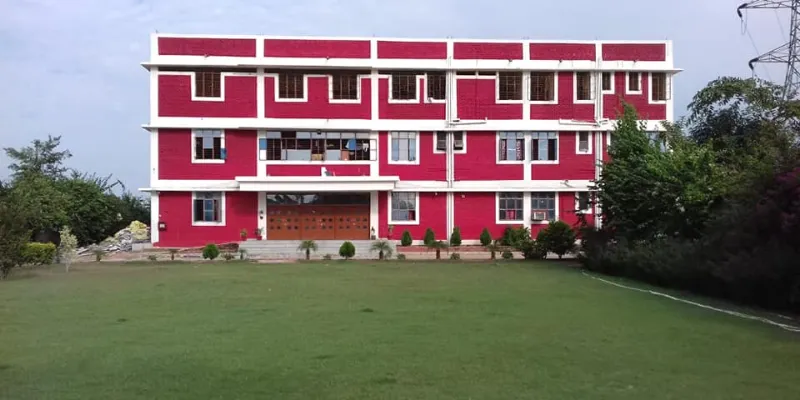
The front elevation of the school, Shoshit Samadhan Kendra.
At the age of 74, Jyoti Kumar Sinha is working to uplift one of the underprivileged and marginalised sections of the society. Through a non-profit Shoshit Seva Sangh (SSS) — to provide quality education for free to the Musahar children — Jyoti successfully runs a CBSE-affiliated residential school for over 500 boys.
At present, over 500 kids are obtaining their education from the institute. The school has been holding classes from Montessori to Class XII, teaching subjects ranging from humanities to sciences, with the assistance of 40-plus staff members.
"The biggest sign of impact I have seen is that the children who are pursuing their education here are going back to their respective homes, and talking to their parents about various aspects like health and hygiene, pollution, child marriage, as well as social change," he noted.
Jyoti was conferred with the prestigious Padma Shri award (the fourth highest civilian honour) for his tireless efforts and noble service in the field of affordable education in 2019.
Making education affordable

Sunitha along with other staff members of Valley View High School.
After working in the field of education for over 25 years, 70-year-old Sunita Jeevan Kulkarni and her husband set up a school to provide quality education to underprivileged and differently-abled students.
Started in 1996 in the Kondhawa region of Pune, the Valley View High School caters to children of daily wage and contract workers, who do not have access to a regular income.
"The idea behind expanding Valley View High School was to offer a platform with learning opportunities at a very reasonable cost for the underprivileged and marginalised. This would help them break away from the cycle of poverty," she noted.
Today, the strength of the school stands at around 1,500, out of whom 900 are boys and 600 are girls. It has 26 classrooms, a library, two A/V rooms, and a computer and science lab.
How students and parents adapted to COVID-19
The pandemic left a looming question over the careers of many students. It has forced us to re-look at our education systems and move to a more digital way of schooling.
“The COVID-19 crisis is continuously telling us to change our education system so that we can make our young learners ready for the jobs the future might hold. Tech can’t replace teachers. However, it can empower teachers, and they can do much better by having various data analyses," said Dr Narendra Shyamsukha, Founder and Chairman, ICA Edu Skills.
The sudden transition to online schooling comes with drawbacks such as low quality of videos, lack of accreditation, more workload for students, and more pressure to maintain self-control and self-discipline. Many parents also voice concerns over the lack of employment options for their children.
While in some situations online teaching has proved to have drawbacks, in others, it has served as stepping stones for college students to obtain better Grade Point Averages (GPAs), leading all stakeholders to understand how different modes of learning can lead to different results.
Helping underprivileged students during the lockdown
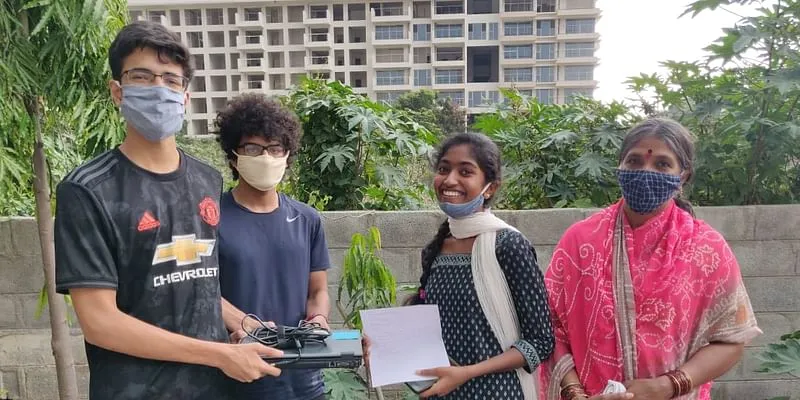
Distributing the refurbished laptops
The COVID-19 pandemic has impacted students coming from poor economic backgrounds, who don’t have the luxury to switch to online methods of learning.
In hopes of helping such students, Asha Kapur, Gitanjali Gupta and her son Dev, Sarah Kurien, and Tanya Bali, started Support our Students — an initiative that provides old, refurbished laptops, desktops, and tablets to underprivileged children.
The volunteers at the Bengaluru-based organisation collect old laptops and desktops from people who want to help. They then refurbish them and provide them to the underprivileged students, who usually wait for their parents to return home to use their smartphones for their classes.
Support our Students initiative distributes 7” Lenovo tablet with a 3G sim option, which costs about Rs 5,750, thanks to the discount provided by the dealers.
India’s 74-year-old education journey
With the recently introduced National Education Policy, India's education sector is moving towards a more holistic way of learning. It has become a flexible and pragmatic education system, paving the way to boost human capital development in the future.
However, in urban areas, students have been attending online classes for the last few months — owing to the pandemic — and have been spending their school time in a virtual classroom.
But for the marginalised, with no access to smartphones and internet facilities, many students fell into the traps of child labour.
"Because of the COVID-19 pandemic, the child labour situation is increasing in our country. People have lost their jobs, and there is no learning happening; these students are falling back on their education,” expressed Richa Prashant, Founder of Sunaayy Foundation.
But all is not lost. Many NGOs are bringing back the classrooms and making learning better for children from rural segments. Across India, they are working to help rural students find their way back to schools, and ultimately, become independent.
How students and teachers are assessing the NEP

National Education Policy
Earlier this year, the Union Cabinet announced the new National Education Policy.
From introducing a common entrance exam for admissions, reductions in curriculums, integration of vocational education from Class VI, governance of higher education institutes (HEIs) under a single regulator, to the discontinuation of MPhil programmes — the initiative calls for several significant changes.
One of the most transformational reforms is that of ousting the 10+2 structure of school curriculums with a 5+3+3+4 approach. Additionally, the adoption of mother tongue as the medium of instruction till at least Class V, practical and application-based board exams, multiple entries and exit points for courses, as well as better flexibility in choosing academic streams have been introduced as part of the new policy.
“As a student pursuing medical genetics, I feel the decision to teach basic computational language at school is apt," said Jackson Jesinth, a student who is pursuing his Bachelor's in Medical Genetics from Chettinad Academy of Research and Education.
"Besides, bringing in a standardised single entrance will be a great leveller. It will loosen the stranglehold that coaching centres have on education, and thereby take the pressure off the minds of kids,” said Sarah Kurien, an education counsellor based out of Gandhinagar.
However, many academicians don’t see regional languages as the medium of instruction beneficial to the students.
“While it is important for a child to know their mother tongue, focusing entirely on local languages during primitive learning years can hinder their capabilities in attempting future international exams, which are primarily in English," said Anitha George, Principal, Mar Athanasius International School, Kerala.
Making rural India adapt to digital education
The COVID-19 pandemic has created multiple hardships for teachers, especially for those in rural India. With most of the schools shutting operations, school administrations are now relying on virtual platforms to conduct classes online. However, there is a lack of tools to impart digital education in these remote regions.
To bridge these gaps and to aid teachers and students in adapting to the new normal, many organisations and individuals have been coming forward.
DigitalDaan is one such online platform that is collecting old, yet functional digital devices like smartphones, laptops, tablets, and projectors. Through its 700 centres across 25 states and 130 districts in rural areas, it has been enabling students to get access to digital education.
Mumbai-based ThinkSharp Foundation is a non-profit that is attempting to improve the quality of education in rural schools by providing access to infrastructure and digital devices.
In fact, there's the issue of lack of awareness among teachers, many of whom are struggling to adapt to digital tools. For this, — a Mumbai-based edtech startup that is training students for competitive exams — has created an online course to assist teachers in this regard.
Edited by Suman Singh




